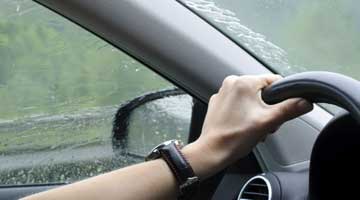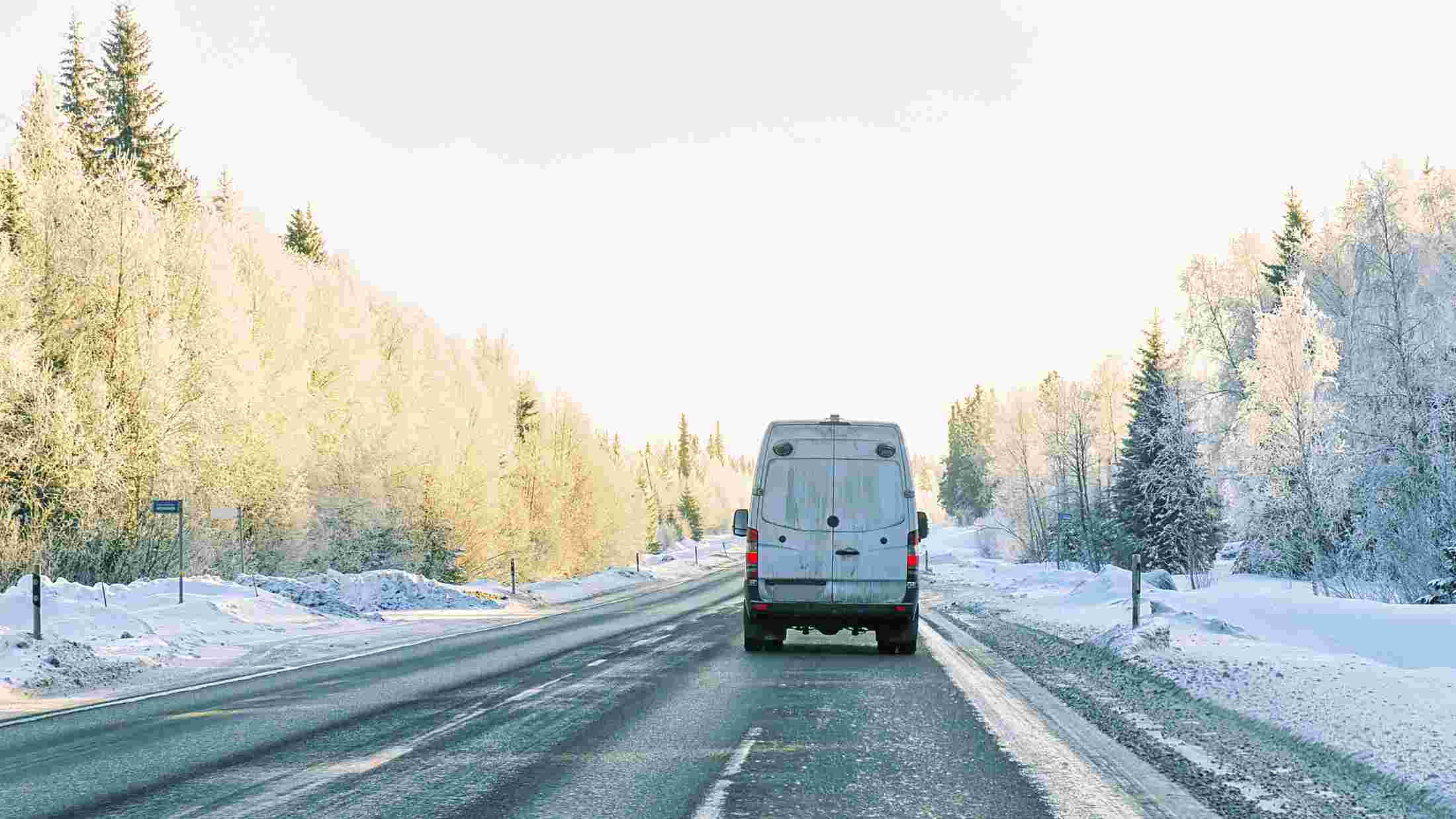A recent study found that 71% of drivers don’t realise how much stopping distances increase on icy roads, so it’s no surprise that accidents and breakdowns become more common during cold spells.
Although many roadside recovery organisations increase their patrols, your van insurance probably won't be your first port of call. Instead it’s wise to prepare your fleet to survive whatever the weather (and other road users) throw at you.
Preparing drivers
Over 4,600 miles of UK road have no mobile phone coverage, so it’s smart to leave prepared. Make sure you know how to check the latest weather and road closures reports, as well as other important information. The Traffic Scotland website, for example, has a 24/7 service showing which roads have been gritted.
Checking batteries
Battery capacity is reduced in cold weather, and with lights and heating draining power there’s greater risk of failure. Batteries usually last five years, so check when yours was manufactured and be on the lookout for crack and breaks in cables, or corrosion around the battery.
Choosing tyres
If you drive in more remote areas where heavy snow or ice is common, switch to winter tyres for increased grip and better braking performance, it can be an important part of driving safely in winter. If not, all-season tyres are fine, but you may want to have snow socks or snow chains on standby.
Defrosting locks
Locks can freeze in cold weather, potentially causing long-term damage. Vaseline or WD-40 are good preventatives.
Engine essentials
Choose a good antifreeze to protect your engine, guided by the vehicle handbook. You should also ensure the coolant ratio in your engine is at the optimum of 60% coolant to 40% water, and consider a thinner engine oil.
Clearing your view
Check your lights are clean and working well, and protect the windshield from excess dirt and grime using a high-quality cleaner – greasy smears can worsen the glare in low winter sunlight. Don’t forget to top up windscreen washer fluid with a suitable antifreeze and make sure your wiper blades are in good condition.
Emergency planning
Preparing for the worst is also advisable, so it's sensible to keep vans stocked with items such as tools, blankets, towropes and high visibility jackets. Now is also the time to check your fleet insurance and consider whether you need additional breakdown cover.
These are just some of the checks you can carry out, however – and they’re no substitute for ensuring your vehicles are in top shape and fully covered under your business van insurance.



